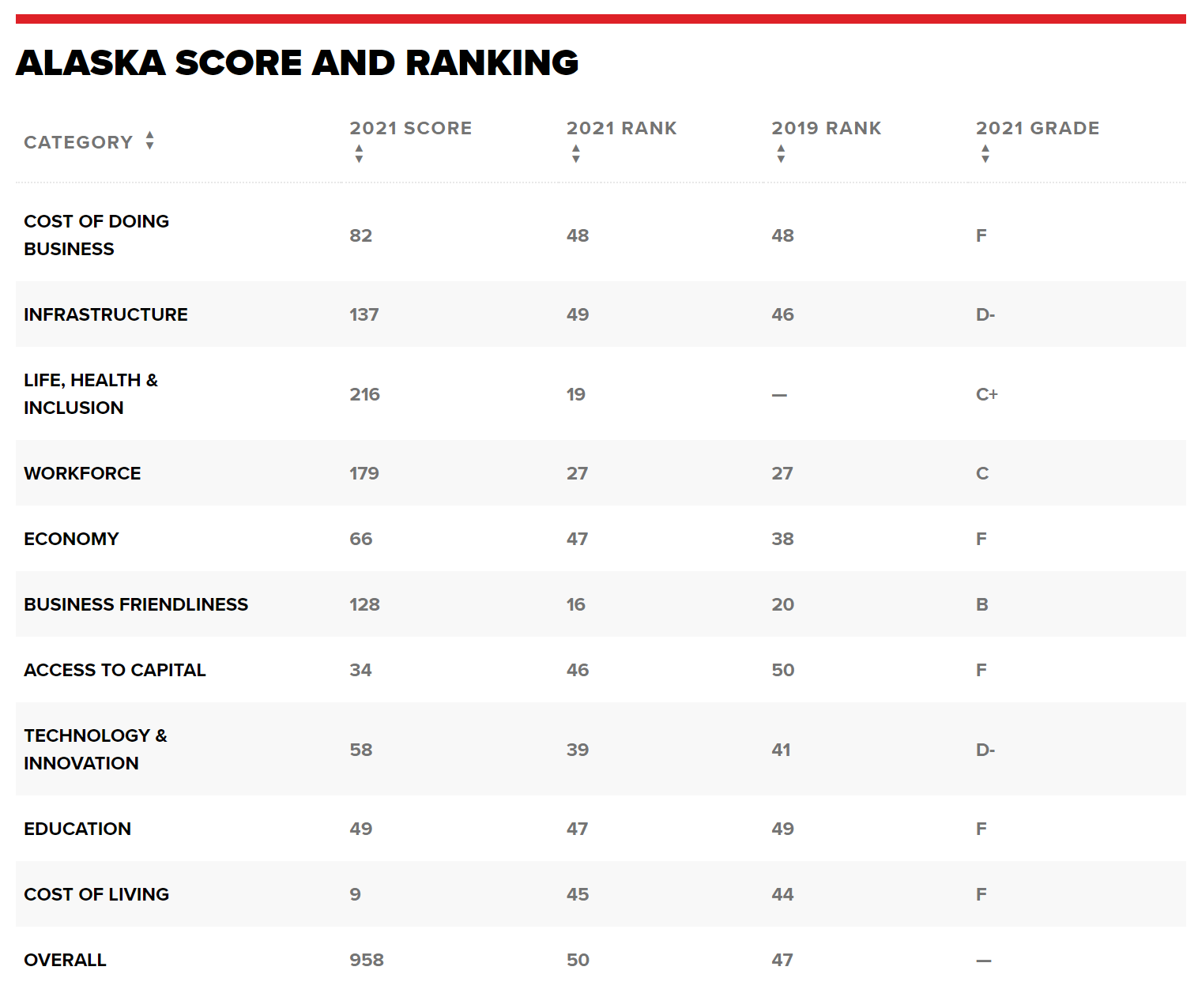Alaska ranks dead last in the U.S. for business competitiveness in 2021. CNBC releases an annual report ranking all 50 states on which are best to do business in, and Alaska ranked 50th out of 50 this year for the sixth time in 14 years.
The report scores each state based on 10 different categories related to business competitiveness. Each state can gain a total of 2,500 points and the state with the most points is ranked as the top state to do business. Each category is weighted by how much states are advertising the category as part of their economic development.
In 2021, the categories with their total points possible and weights are:
Cost of doing business – 400 points possible, 16%
Infrastructure – 375 points possible, 15%
Life, health, and inclusion – 375 points possible, 15%
Workforce – 325 points possible, 13%
Economy – 250 points possible, 10%
Business friendliness (business red tape) – 200 points possible, 8%
Access to capital – 175 points possible, 7%
Technology and innovation – 175 points possible, 7%
Education – 150 points possible, 6%
Cost of living – 75 points possible, 3%

As the table above shows, Alaska’s last-place ranking is due to low rankings in several categories, including the cost of doing business, infrastructure, economy, access to capital, technology & innovation, education, and cost of living. While overall, Alaska has business-friendly taxes, it does have one of the highest corporate tax rates in the nation at 9.4%, making it costly for some companies to do business in the state. Additionally, Alaska does not have a stable economy, nor is it in good fiscal condition, two metrics examined under the economy category.
There is one shining beacon within this report: business friendliness or business red tape. CNBC says the business friendliness category “includes a legal and regulatory framework that does not overburden business. We measure each state’s lawsuit and liability climates, regulatory regimes covering areas such as trade and labor, as well as overall bureaucracy.” Alaska has relatively little red tape slowing down businesses and business owners, thanks in part to rolling back regulations and implementing business liability protection.
But clearly, with a ranking of last place, Alaska has a long way to go in terms of business competitiveness. Implementing an income tax or a sales tax would undeniably harm Alaska’s already hurting businesses after many long months of responding to the COVID-19 pandemic. Instead, Alaska must continue to lead the nation in tax freedom and stabilize the state budget, thus signaling to businesses that the Last Frontier is a safe place to do business.